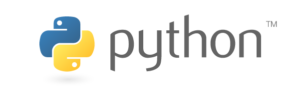
Why Python?
My Guide to Your First Digital Expedition
Thinking about learning a new skill, perhaps diving into the world of programming? It’s a great decision, a sign that you’re ready to step out of your comfort zone. But then come the questions: What’s truly important to focus on? Which programming language should I learn? And how do I even start this journey?
1. What is Python? My First Essential Tool
When I first seriously considered which language to master and teach, Python stood out. I see it as a high-level, dynamically
typed
Unlike many other languages that can feel like deciphering ancient scrolls (I’m looking at you, C or early Java!), I found Python to be extremely welcoming, especially for complete beginners with little or no prior programming experience. It allows you to focus on the “what” you want to achieve, rather than getting bogged down in complex syntax.
You can download Python for free from the official basecamp:

https://www.python.org/ (section Downloads)
2. What is Python Good For? Why Should It Be in My Backpack?
I often compare Python to a universal Swiss Army knife for us digital explorers. Its true strength lies in its immense flexibility. In my experience, it’s used almost everywhere, opening up countless paths on your tech journey:
- Building new “web settlements“ and applications (Web Development)
- Analyzing “discovered data“ and unearthing insights (Data Science, Analysis)
- Automating routine “expedition tasks“ (Automation, Scripting)
- Crafting “intelligent guides“ (Artificial Intelligence, Machine Learning) that help us navigate complex digital terrains.
Knowing Python truly opens doors to many fascinating fields and makes it an invaluable asset for your future explorations. Once you grasp the fundamentals of the language and core programming principles, a multitude of interesting possibilities and directions emerge. This overview will help you understand the options and better plan your next steps on the map.
3. Charting Your Course: From Core Skills to Specialization
Before venturing into specialized territories, I always emphasize building a solid foundation:
- Programming Fundamentals (Your Basic Expedition Gear): Language syntax, data types, variables, loops, conditionals, functions – the essential tools for any journey.
- Intermediate Techniques (Advanced Navigation Skills): List/dict comprehensions, file handling (reading/writing data logs), basics of web scraping (gathering intelligence from the web).
- Advanced Concepts (Mastering Your Craft): Object-Oriented Programming (OOP – classes, objects), modules (organizing your code like a well-packed toolkit).
After mastering these basics, you can choose a specific direction that truly excites you. Each path utilizes additional specialized “maps” (libraries) and “vehicles” (frameworks):
Web Development:
- Frameworks:
Flask,Django,FastAPI. - Front-end Basics: HTML, CSS, JavaScript.
- Databases: SQL (
MySQL,PostgreSQL), ORMs (SQLAlchemy). - APIs: REST, GraphQL.
- Frameworks:
Data Science and Data Analysis:
- Libraries:
NumPy,pandas,Matplotlib,Seaborn. - Data Skills: Data cleaning, analysis, visualization.
- Machine Learning:
Scikit-learn,TensorFlow,PyTorch. - Big Data Tools:
Apache,
SparkDask.
- Libraries:
Automation and Scripting:
- Task Automation Modules:
os,shutil,subprocess. - Web Scraping Tools:
BeautifulSoup,Scrapy,Selenium. - Excel Automation:
OpenPyXL,xlrd.
- Task Automation Modules:
Artificial Intelligence (AI) and Machine Learning (ML):
- AI Fundamentals: Algorithms (regression, classification, clustering).
- Frameworks:
TensorFlow,PyTorch,Keras. - Deep Learning: CNNs, RNNs, GANs.
- Data Preparation: Dataset creation, augmentation.
DevOps and Cloud:
- Infrastructure Automation:
Ansible,Terraform. - Cloud Platforms:
AWS,GCP,Azure. - Containerization:
Docker,Kubernetes.
- Infrastructure Automation:
Cybersecurity:
- Penetration Testing Libraries:
Scapy,Nmap. - Encryption Modules:
cryptography,hashlib. - Network Analysis: Packet capturing, log analysis.
- Penetration Testing Libraries:
Game Development:
- Frameworks:
Pygame,Panda3D. - Physics Simulation:
PyBullet,pymunk.
- Frameworks:
4. Why Learning to Code is a Valuable Skill for Any Explorer (Even if I Don’t Become a Full-Time Programmer)
From my own journey through different fields, I’ve found that learning to program equips you with crucial skills that transcend coding itself. Even if you keep it as a hobby or a complementary skill, the experience is invaluable.
You learn a very specific and powerful way to approach any problem. If a challenge seems too complex to solve head-on, programming teaches you to break it down into smaller, manageable pieces – “waypoints” on your map. You tackle these smaller stages one after another, and in the end, you conquer the entire challenge. It trains you to:
- Divide and Conquer: Deconstruct complex problems.
- Plan Your Route: Strategize your steps and approaches.
- Manage Your Resources & Timeline: Understand dependencies and estimate effort.
- Think Systematically: Develop logical and structured thinking.
I think of it as of preparing for a real expedition: You start with a goal (what you want to discover or achieve). Then, you figure out what tools and knowledge (your “gear”) you need to get there. You study the “terrain” (the problem space) and “climate” (constraints), so you can prepare a realistic roadmap and timeline. You also think about backup plans (what if something goes wrong?) and whether you need a team of experts, because no one is a master of everything.
These skills – analytical thinking, problem decomposition, strategic planning, and adaptability – are highly transferable to countless different fields and professions. The experience gained from learning to program, in my opinion, always pays off.
5. Ready to Start Your Own Coding Expedition?
I hope these insights have been helpful! If you’re ready to dive deeper into Python, explore AI tools, or chart your course in the world of IoT and MicroPython:

Python Foundations Course materials (on GitHub):
https://github.com/GeorgeFreedomTech/Python-Foundations-Course
Python Intermediate Course materials (on GitHub):
https://github.com/GeorgeFreedomTech/Python-Intermediate-Course
Python Advanced Course materials (on GitHub):

To discuss your learning path: https://cal.com/georgefreedom
Let’s explore the world of technology together!
